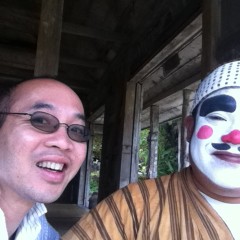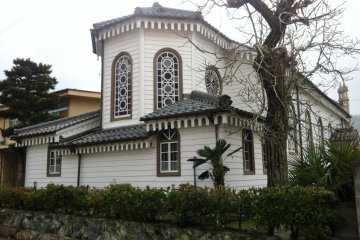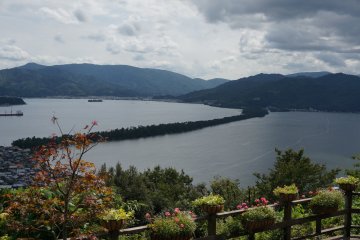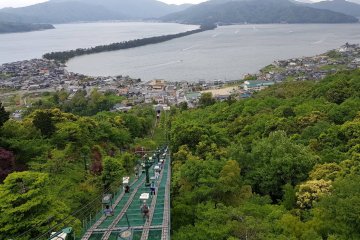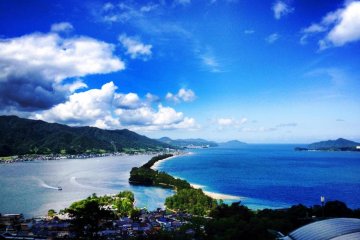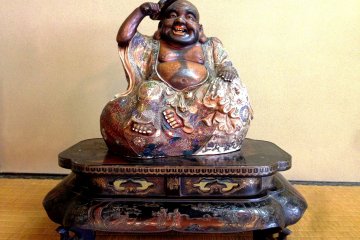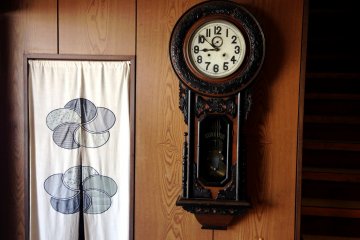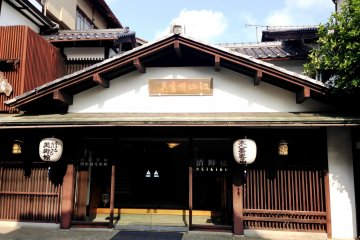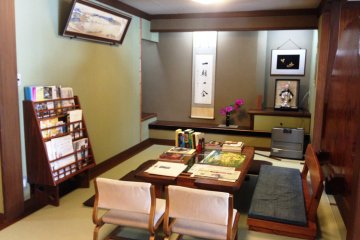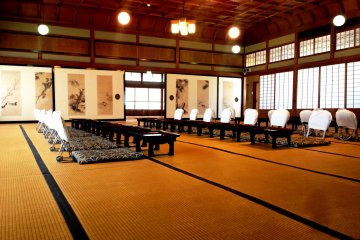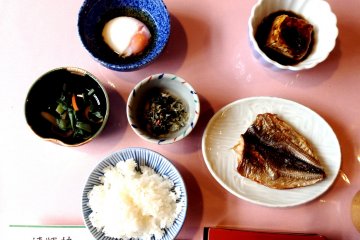There is always a danger when a hotel is too comfortable. You can end up spending all day there, instead of going out and doing a bit of sightseeing.
At the Seikiro Ryokan, it is very tempting to cuddle up with a good book by the window and be bathed by the sun with a peaceful view of the garden outside.
While Seikiro is bordering on being too comfortable, like most ryokans it doesn’t have a swimming pool or a sea view, so yes, you can eventually coax yourself from your slumber and head out to Miyazu or Amanohashidate.
Of course, definitions of comfort vary from one person to another. Breakfast in bed may be seen as the height of comfort, but imagine the crumbs and other such items lying on your sheets. At Seikiro they serve breakfast instead in the communal dining area, with a feel of domestic comfort similar to that of an English bed and breakfast. It is like you are having breakfast at Seikiro’s house, except the hosts are noticeably absent, leaving you to contemplate or perhaps meditate on the feast of colors and textures before you.
Breakfast consists of pickled carrots and spinach, raw egg in dashi, seaweed infused tofu, grilled butterflied mackerel, rice, miso soup and an assortment of Japanese condiments. For more than a thousand years pickled vegetables were a key part of Kyoto cuisine. From eggplants to indigenous vegetables, it seems that nearly every plant can be pickled. While the lack of sugar and fat in the breakfast may seem boring, it is the healthiest way to start your day. The main ingredient for miso is Soy; a nut with a type of phytonutrient called isoflavones that helps keep your body well and may reduce the risk of cancer.
For dinner seasonal cuisine is showcased, including Matsuba Crab in the cooler months.
Seikiro Ryokan was founded at the end of the Seventeenth century and has been in the same family ever since. The current owner personally welcomes each guest, and you may have an opportunity to go on a tour of the ryokan and museum. There is a painting of Amanohashidate from a few centuries ago, showing the sand spit that is half the length of today. To stay in the same ryokan that has remained constant while even nature itself has changed is a unique experience. You may even stay in the same room as some of the poets and writers from the early twentieth century, such as Hekigoto Kawahigashi, Ujo Noguchi, Kan Kikuchi and Eiji Yoshikawa. While Noguchi is known for his pensive and melancholic poems like akai kutsu (red shoes) and Shabondama portray lives lost and the separation of loved ones, he must have drawn a lot of inner strength from his retreat here at Seikiro.
While there is over 300 years of history, the owners are not smug, but are gentle and welcoming. They carry the weight of history well, bringing the ryokan to the modern times with Wi-Fi and excellent level of English information and assistance, making it highly recommended place to stay in the Miyazu, the gateway to the scenic Amanohashidate area. They offer complementary pickups form Miyazu station, which is less than a hour from Maizuru, home to the cruise ship terminal.


